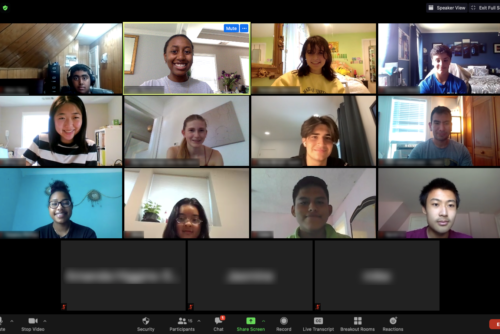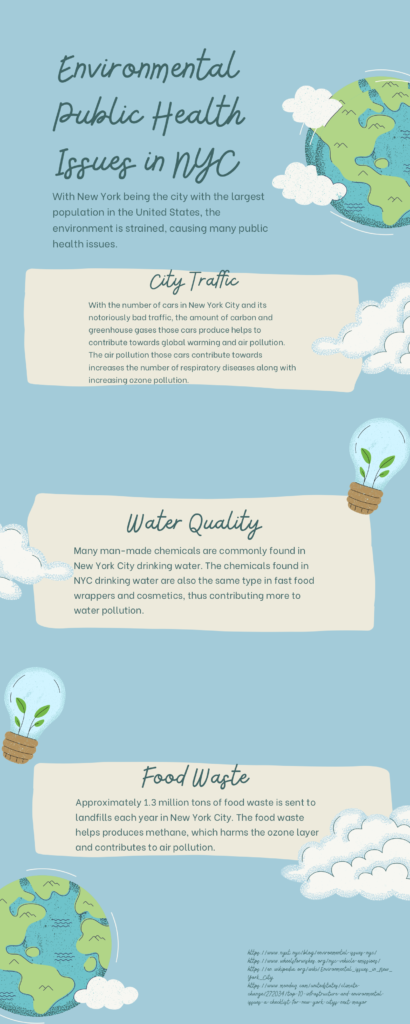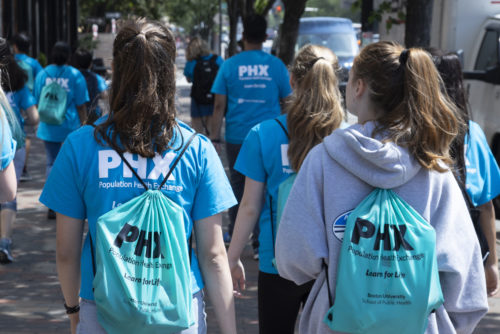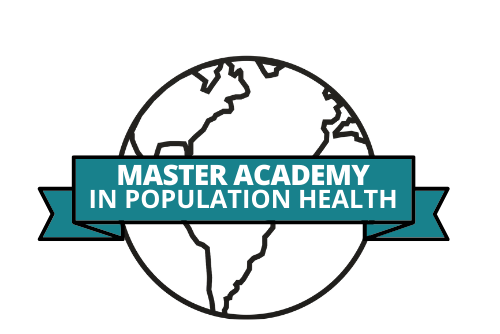PHX Perspectives | July 14th, 2021
The summer of 2021 has been different from other summers, with cities, businesses, and schools resuming operations more than a year after the onset of the COVID-19 global pandemic. Summer educational programs can be a chance for children and teens to make friends, learn about interesting new topics, and acquire new skills—experiences many have missed out on.
While the COVID-19 pandemic has had many devastating effects, perhaps one of the few positive things to emerge is the number of young people engaging in social and health related conversations on the local, national, and global level. Not only does youth engagement positively impact the community, but it helps young people develop leadership skills and self-esteem according to the U.S Department of Health and Human Services. The Association of Schools and Programs of Public Health’s Framing the Future Initiative has prioritized teaching public health in K-12 because they believe “connect[ing] the many factors that impact health and wellness could assist efforts in developing an educated citizenry and attracting students to careers in public health,” (Framing the Future). As population health education continues to evolve, Population Health Exchange also evolves to provide resources for young people to explore current public health issues and future careers.
 Boston University School of Public Health (BUSPH) hosts groups of middle school and high school students each year through the Population Health Exchange (PHX) summer youth programs. While hosting a nuanced and engaging health experience online can be daunting, PHX adapted to the challenges posed by COVID-19 and stuck to their core mission to educate the future generation of public health leaders through two virtual summer youth programs: The Master Academy in Population Health for rising 10-12th graders and the PopHealthExperience for 7-9th graders.
Boston University School of Public Health (BUSPH) hosts groups of middle school and high school students each year through the Population Health Exchange (PHX) summer youth programs. While hosting a nuanced and engaging health experience online can be daunting, PHX adapted to the challenges posed by COVID-19 and stuck to their core mission to educate the future generation of public health leaders through two virtual summer youth programs: The Master Academy in Population Health for rising 10-12th graders and the PopHealthExperience for 7-9th graders.
As part of the session titled, Healthy Environment, Healthy People, led by Assistant Professor Patricia Janulewicz Lloyd, students were taught to conceptually think about the types of data that would be needed to examine the relationship between exposure and human health outcomes. This conceptual framework can be applied to urban and non-urban public health questions. Climate change was a specific example covered, and students were taught the basics of the underlying causes of climate change (i.e., human activity). By giving students this knowledge—and the knowledge that there are things that can be done to reduce our environmental exposure and mitigate and adapt to the impacts of climate change—it gives them a sense of empowerment and allows them to start thinking about public health and how they can engage in public health now and in the future.
 Students then learned to design their own infographics. Infographics are visual representations of data or knowledge intended to present information quickly and clearly. In a Public Health Communications 101 workshop with Taylor Roundtree, Master of Public Health candidate at BUSPH and PHX Graduate Intern, students were tasked with selecting a city, conducting research to identify three environmental health issues in that city, and creating an infographic to display the results of their data. Justin, a rising 8th grader from Acton, MA, created the infographic shown here to visualize how traffic, water quality and food waste impact the environment in New York City.
Students then learned to design their own infographics. Infographics are visual representations of data or knowledge intended to present information quickly and clearly. In a Public Health Communications 101 workshop with Taylor Roundtree, Master of Public Health candidate at BUSPH and PHX Graduate Intern, students were tasked with selecting a city, conducting research to identify three environmental health issues in that city, and creating an infographic to display the results of their data. Justin, a rising 8th grader from Acton, MA, created the infographic shown here to visualize how traffic, water quality and food waste impact the environment in New York City.
“This is the first time we incorporated infographics into the youth programs and students are grasping it fairly quickly and walking away with an entire new skillset,” said Francisco Patiño, the Summer Youth Programs Manager. “Seeing the next generation of Public Health leaders emerge right in front of my eyes (albeit through a computer monitor) is nothing short of amazing. This is the generation that will have to tackle the big issues in public health, like urban health and climate change. Now I am confident we are in excellent hands.”
On the last day of the youth program, students delivered their presentations about public health issues and innovative solutions in front of their parents, and BUSPH faculty and staff. Kelvin, a rising 9th grader from McAllen, TX, and his group presented on vaping and the negative health impacts on young people that vape and the environment. “I think that the most urgent environmental health issue is smoking. Because smoking in general is bad, but the problem gets worse when younger people start doing it too and it damages their bodies and the environment at the same time,” Kelvin said.
Similarly, Adrian, another rising 9th grader from McAllen,TX, believes that air pollution and climate change are the most urgent challenges facing his generation. “I feel like young people could tackle this issue by trying to spread awareness by presentations or community service,” he said.


